The First Step to Telling Better Cocoa Farmer Stories
A mindset for better cocoa farmers stories
Dear friend,
In my previous letter, I discussed the CSR-zoning of cocoa farmers, a phenomenon where cocoa farmer’s stories are told only when it’s time to show the success of Corporate Social Responsibility projects.
Two founders and a sustainability manager gave me great, encouraging feedback. The letter sparked an important conversation in the cocoa industry and that felt good.
But the thing is, when you present a problem, people naturally want to hear solutions from you. So, in this letter, one question will guide my reflections:
What would it take for chocolate brands to tell stories that reflect the dignity of cocoa farmers?
It’s a great question, a juicy one that invites many ideas.
For now, I’ll share with you the simple mindset that enables me to tell more interesting, more human, and more dignifying stories about cocoa farmers.
🧠 Cocoa farmers are expert craftspeople. The chocolate industry is impossible without them.
Let me explain:
Cocoa is an incredibly vulnerable forest crop. Think of it as a sickly baby, one that demands relentless care and attention.
From its infancy, the farmer nurtures it with extreme care. Too much sunshine is dangerous for cocoa, so farmers plant cassava and plantain to shade the seedlings. As the seedlings grow into trees, bacteria, fungal infections, and parasitic plants attack, each threatening to weaken and destroy them. To protect the crop, the farmer - vigilant guardian - visits the farm regularly to do pest and disease control.
When mature cocoa trees finally mature and begin to flower, it’s great news. But even then, a lack of midges for pollination may force the farmer to hand-pollinate - a labor-intensive, meticulous task. And when the pods ripen, new challenges arise: chipmunks and squirrels feast on the sweet pulp surrounding the beans. This cuts into the farmer’s earnings (cocoa beans are sold per kg).


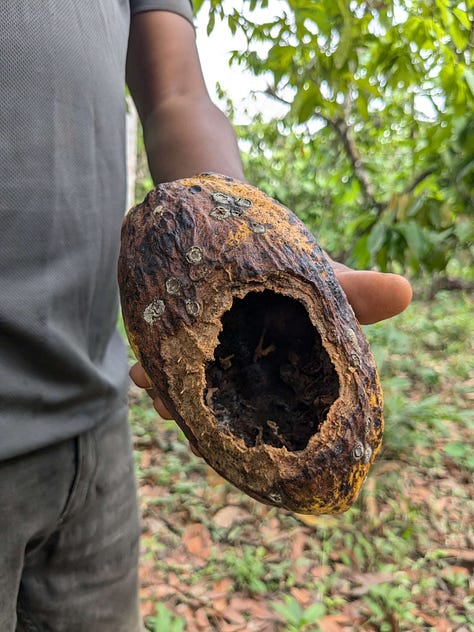
Then comes the next chapter: harvesting, transporting the cocoa pods, cracking them open, extracting the beans, fermenting them, and drying them for days. Each demands physical labor. And if the weather has mood swings, drying cocoa turns into a necessary emotional rollercoaster.
By now you can see that cocoa farming is babysitting. It requires expertise, extreme sensitivity, patience, and resilience. It requires farmers to understand the nuances of the needy crop and constantly adapt to nature’s whims to ensure that cocoa makes it from tree to chocolate.
I don’t know about you, dear reader, but when someone does hard work that I can’t do, I admire them.
When I first experienced the work and skill cocoa farming required, when I realized that this work puts chocolate in the hands of billions around the world, and when I understood what a sick cocoa plant means to its grower, I had only two feelings toward cocoa farmers:
Respect and admiration.
And yet, most chocolate lovers would never meet or talk to a cocoa farmer. They’ll never get the chance to walk on the crunchy dry leaves of a cocoa farm and witness, firsthand, the resilience behind each chocolate bar or bonbon they savor. This realization led me to start African Cocoa Stories - a storytelling initiative to bridge this gap.
So, again, what would it take for chocolate brands to tell stories that reflect the dignity of cocoa farmers?
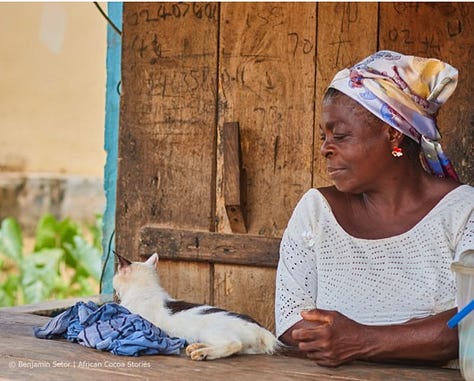
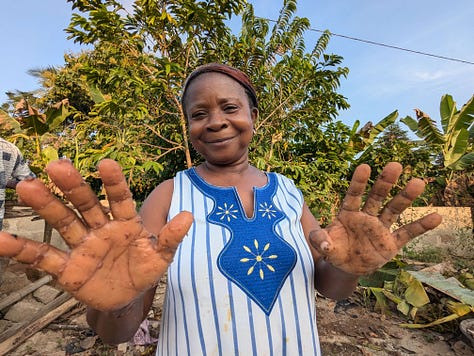
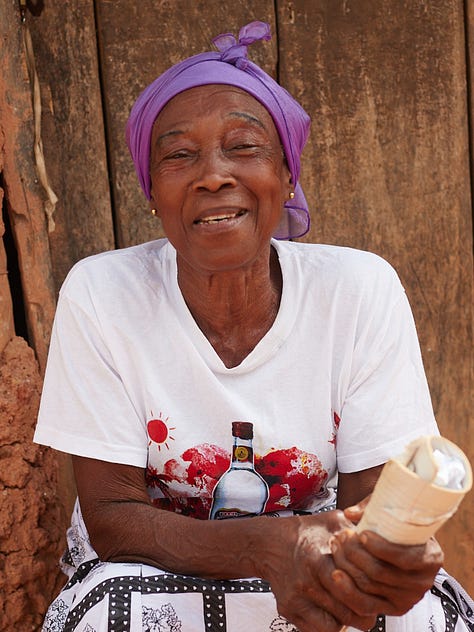
It starts with a shift in perspective: seeing cocoa farmers not as mere beneficiaries of corporate goodwill, but as experts and craftspeople on whose shoulders the entire industry rests.
This mindset shift changes the way brands tell stories:
Instead of using storytelling to only prove ethicality or fairness of supply chains, they’ll also focus on inspiring admiration for the farmer. Storytelling then becomes a celebration of expertise and humanity, not just a tool for corporate compliance.
❤️ Thank you for reading my thoughts. I appreciate you!
♻️ If you liked this letter, share it with one cool person.
❓ Questions about my cocoa adventures? Let’s connect.
Recent updates:
🔍Started research into the educational experience of today’s cocoa farmers.
🎙️Recorded a podcast (TBD) with two amazing people exploring the cocoa industry.
Credits : Cansafis Foote, Leanna, Dominik Gmeiner, and Zara Bogaski gave me great feedback!

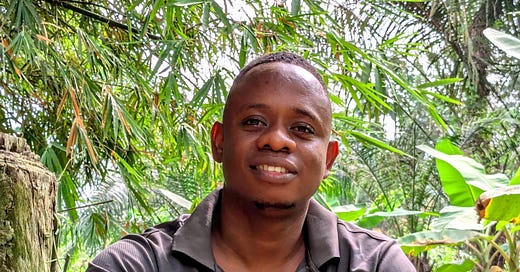


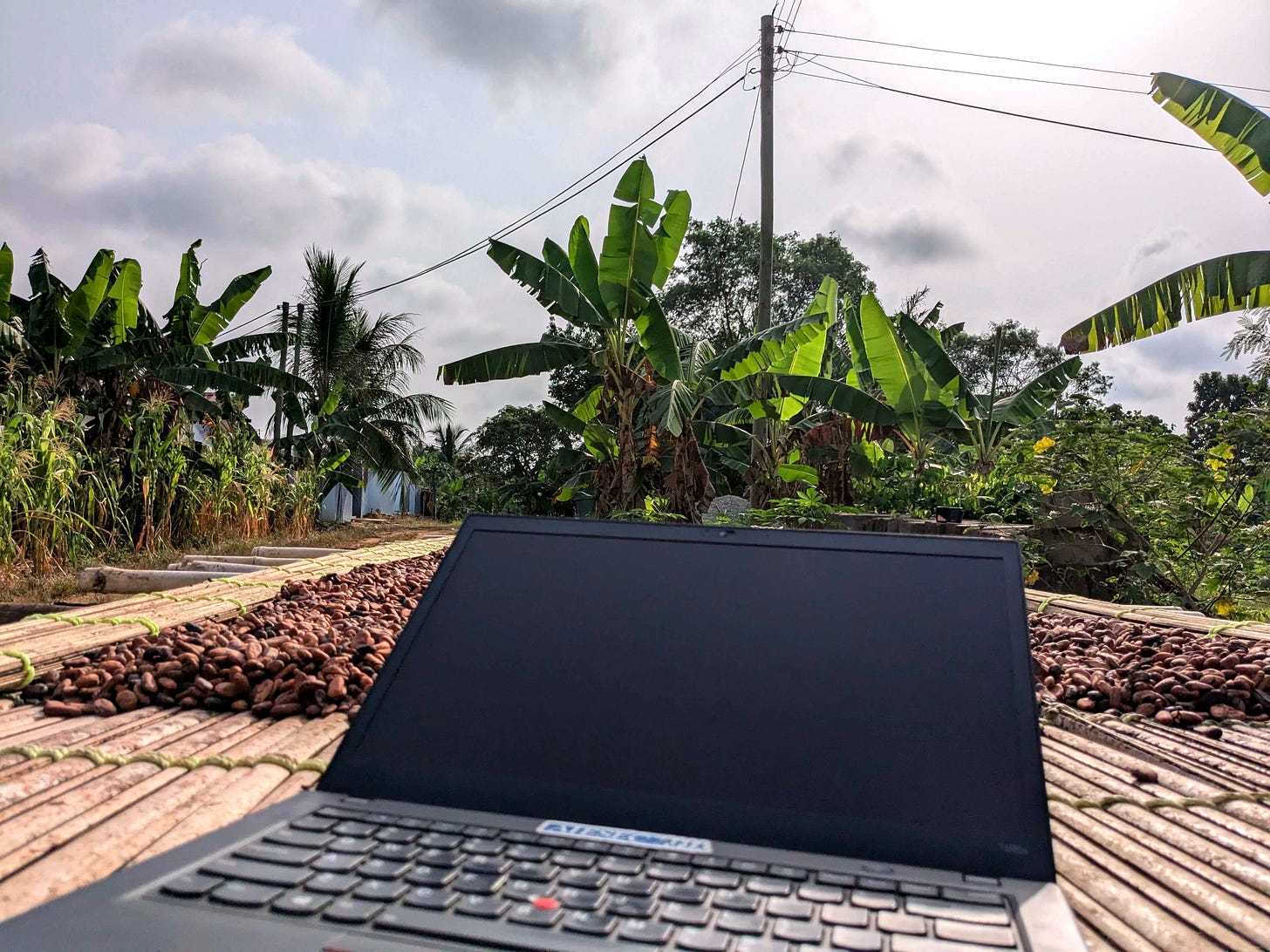
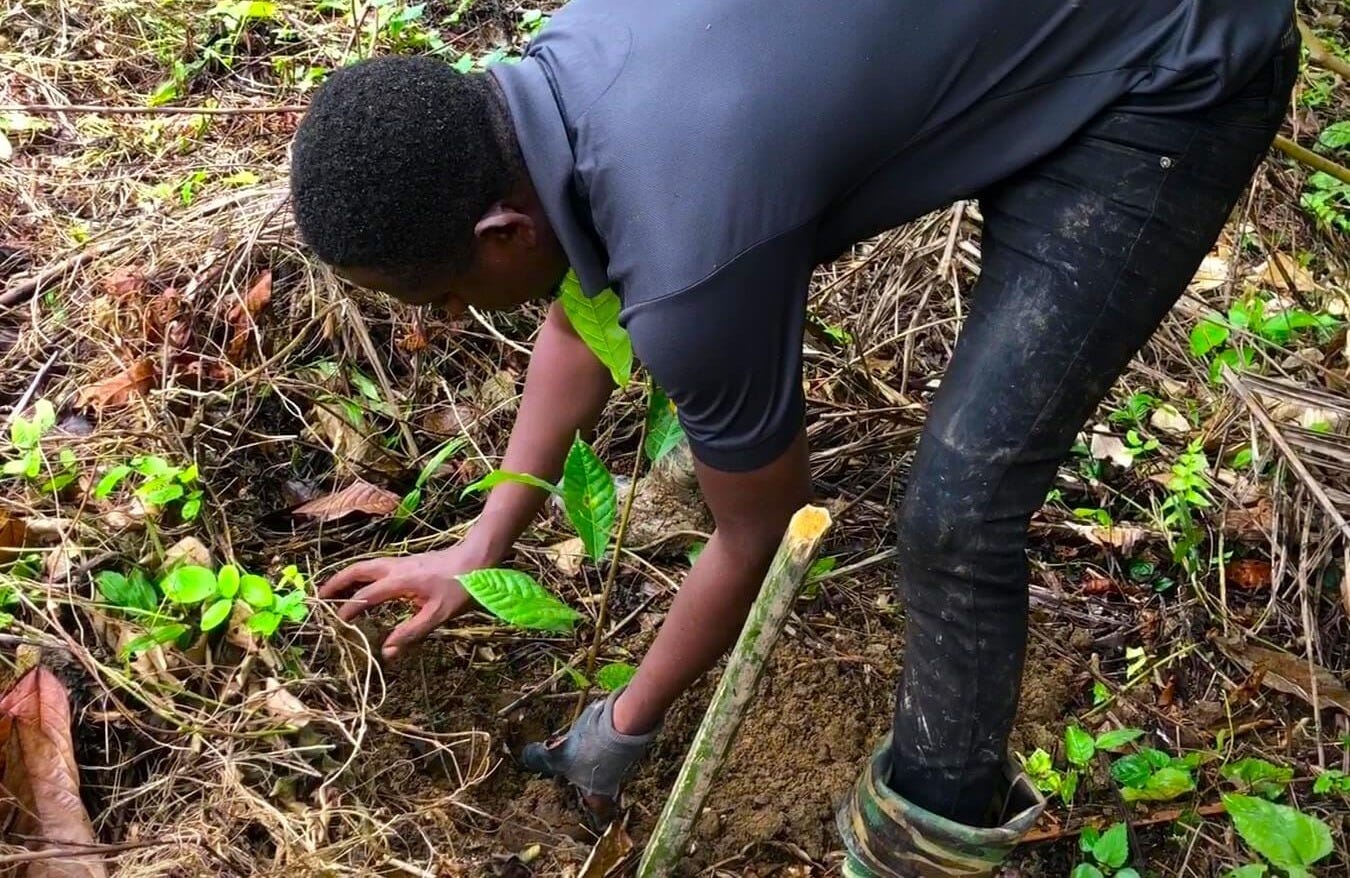

…cheers to you and hoping to hear more and more of these cocoa farmer stories…what a fascinating opportunity you have to be so close to so much interesting history…